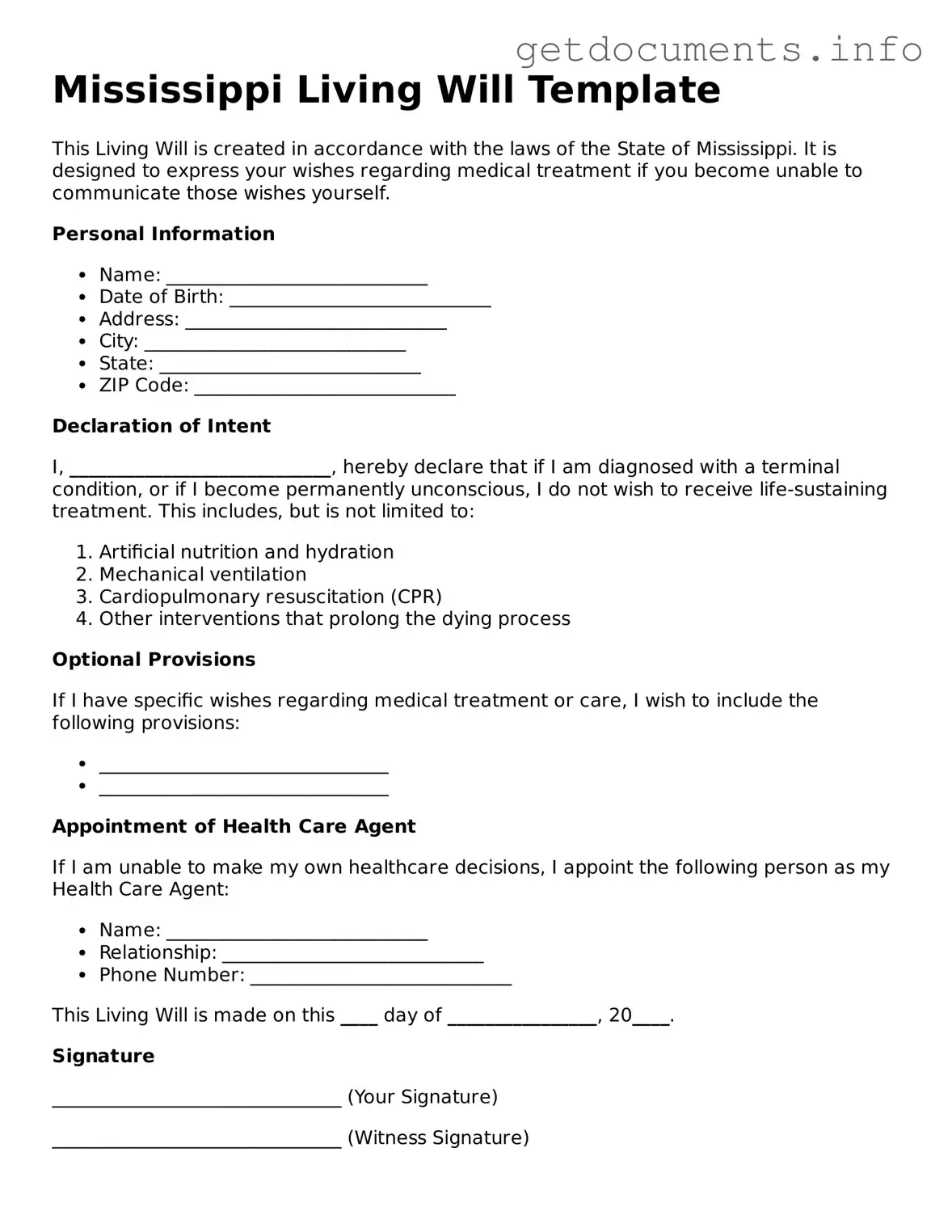Free Living Will Template for Mississippi
A Mississippi Living Will form is a legal document that allows individuals to outline their preferences for medical treatment in the event they become unable to communicate their wishes. This form serves as a crucial tool for ensuring that one's healthcare decisions are respected, particularly in end-of-life situations. By taking the time to complete this important document, individuals can provide clarity and peace of mind for themselves and their loved ones.
Take control of your healthcare decisions today by filling out the Mississippi Living Will form. Click the button below to get started!
Access Living Will Editor

Free Living Will Template for Mississippi
Access Living Will Editor
Got places to be? Complete the form fast
Fill out Living Will online and avoid printing or scanning.
Access Living Will Editor
or
⇩ PDF File
